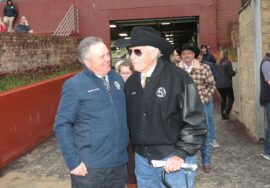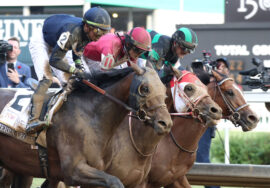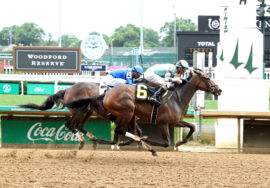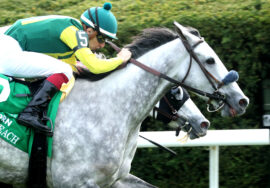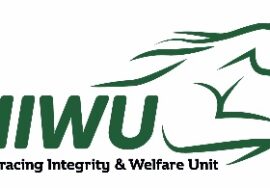
Maline retiring after 47 years; Clabes named interim executive director
(Photo: Marty Maline)
LOUISVILLE, Ky. (Friday, Dec. 2, 2022) — Marty Maline is retiring as executive director of the Kentucky HBPA on Dec. 31 after almost 47 years in the post.
Maline, who began the job in February 1976, ranks among the country’s best-known and most-respected executive directors of any racing organization. His service is by far the longest with the Kentucky Horsemen’s Benevolent & Protective Association and probably for any HBPA-affiliated organization.
Veteran industry consultant Joe Clabes, who has overseen the Kentucky HBPA’s government affairs and advocacy, has been named interim executive director and will work alongside Maline through December during the transition. Clabes has a lifelong involvement with horses and has worked on equine policy for more than 20 years. That includes serving 2 1/2 years as executive director of the multi-breed Kentucky Equine Education Project (KEEP).
Maline said now just seemed the right time to retire. He said he’s been impressed with the younger generation of horsemen on the Kentucky HBPA board (Travis Foley as an owner representative, and a year ago the addition of trainers Jason Barkley, Norm Casse and Bentley Combs).
“We’ve got such a complement of young guys on our board now,” he said. “I think more than anything maybe it’s time to turn it over to a younger person with a lot of enthusiasm and they can all improve the organization…. We’re in good shape. We’ve got this great office here. There’s a whole different set of issues, obviously HISA being one. (But) we’ve got good people. I’m really excited about those young guys.”
Maline worked under Kentucky HBPA presidents Tommy Stevens, Ed Flint, Stanley Conrad, Pete Salmen Jr., Dr. Alex Harthill, Susan Bunning and Rick Hiles.
“Marty and I have worked together pretty close to 40 years,” said Hiles, serving an eighth term as the Kentucky HBPA’s president. “We’re just losing a good man, and the horsemen are losing a good friend. I’m really going to miss him.”
Maline started out as the Kentucky HBPA’s lone part-time employee, his status changing to full time after one day. The organization has gone from operating out of its attorney’s downtown office with no on-track presence to owning the 1 1/2-story brick house that serves as its main office just inside the Churchill Downs’ stable gate. There also are seasonal satellite backstretch offices at Keeneland, Ellis Park, Turfway Park and Churchill and two year-round offices at Kentucky’s two biggest training centers.
“That was really important to horsemen, to be able to communicate directly to the HBPA,” Maline said. “And getting the right staff was really the key, to get people who were dedicated. At the (beginning), we didn’t have a lot of money, but we got good people involved.”
Maline has seen the Kentucky HBPA staff expand to a staff of 11, including part-time employees. Among the important hires was Julio Rubio in 2000 as backstretch services coordinator and Hispanic liaison to the many Spanish-speaking workers.
“It’s hard to imagine the Kentucky HBPA without Marty,” said office manager Sara Toomey. “He hired me fresh out of the University of Louisville’s equine program back in 2008 and gave me my first opportunity in the thoroughbred industry. Under Marty’s guidance, I’ve learned so much about not only thoroughbred racing, but also what it means to be a diplomat for horsemen and a true leader. He genuinely cares about horsemen and his employees. He knows the Kentucky HBPA, from the ‘beginning of time,’ and it’s impossible to put into words what a loss he is both professionally and personally. He has worked tirelessly, quite literally, since 1976 and his retirement is extremely well earned. “
Maline says his proudest moment came when a federal appeals court ruled in favor of the Kentucky HBPA in its 1993 lawsuit against Turfway Park after the track tried to send out its race signal to an out-of-state outlet without the Kentucky horsemen’s approval. The court determined that the rights of horsemen under the Interstate Horse Racing Act of 1978 supersedes simulcasting contracts between racetracks.
“It’s become so pivotal for the whole industry,” Maline said. “It’s still the seminal case that determines horsemen’s rights.”
Another proud accomplishment: Helping to get the regulation changed to where revenue from uncashed parimutuel tickets goes into a fund for needy horsemen and backstretch workers — the Kentucky Racing Health and Welfare Fund — rather than into the state’s General Fund. With so much betting now online, Maline has worked with the Kentucky HBPA board, racetracks and the Kentucky Horse Racing Commission to find additional funding for that important program.
Maline was a pivotal part of the team that worked with lawmakers in 2020 to pass legislation that protects historical horse racing, the innovative parimutuel technology that has been a game-changer for Kentucky’s entire racing circuit.
He was at the forefront coordinating assistance after a tornado hit Ellis Park and following barn fires at tracks and training centers.
At one stage, Maline served as interim executive director of the National HBPA while maintaining his Kentucky post.
He leaves with the satisfaction of being on the team that has negotiated the best horsemen’s contracts in the country for years.
“Of course, we’ve got good people: Dale (Romans), Frank (Jones) and Rick,” he said of the HBPA’s negotiating body. “They’ve been dynamic. Just like the days (of free stall rent and training) we get before and after meets. That’s unheard of for most of these states.”
Clabes brings strong background in horses, non-profits
Clabes brings in a strong background working in the horse industry as well as with nonprofit organizations. The American University graduate has been an independent consultant advising clients in government affairs, grassroots advocacy, public policy and media relations on the federal, state and local level since 2006.
“Marty Maline has had a long, illustrious career serving Kentucky’s horsemen,” Clabes said. “Succeeding him and meeting the standard he has set will be a challenge. He and Rick Hiles have provided the Kentucky HBPA exceptional representation for many years. As a second-generation horseman, I am honored that Rick and the board have placed their faith in me, and I look forward to helping to build on the solid foundation they have created.”
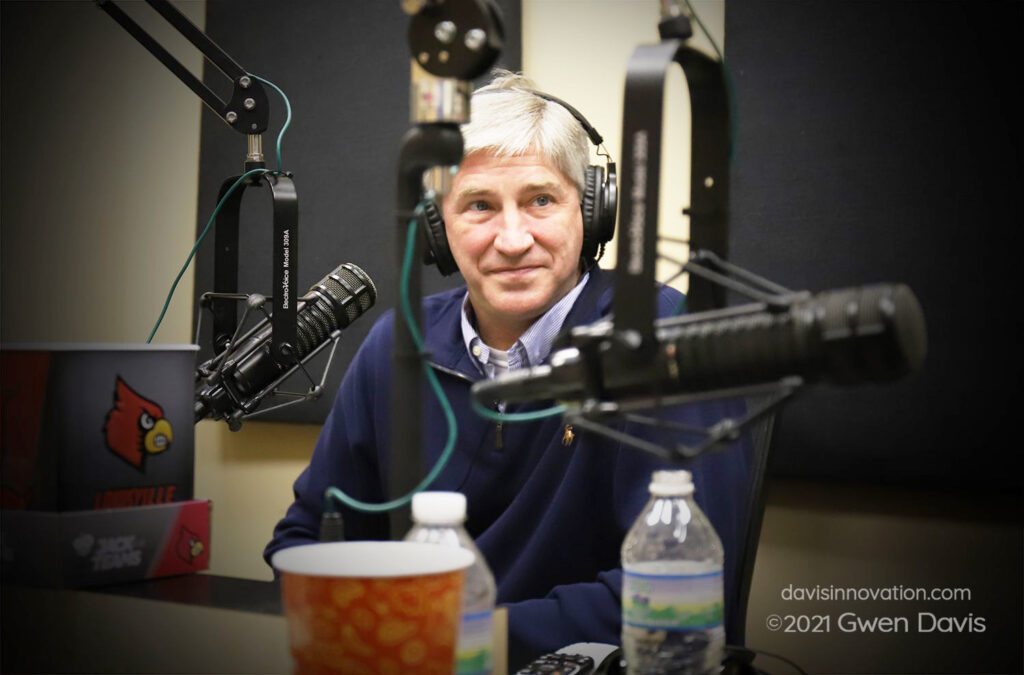
The son of the late owner/trainer/breeder Gene Clabes and Kentucky Journalism Hall of Fame member Judy Clabes, Clabes grew up in the racing markets of Henderson and Northern Kentucky and lives in Lexington. He has been an active participant in the thoroughbred business providing bloodstock services, racing management and buyer representation at public auctions. That includes as manager of the Selima Thoroughbreds racing partnership.
As KEEP’s executive director and lead lobbyist, Clabes worked to protect and grow Kentucky’s world-renowned equine industry, including achieving passage of legislation providing a closer alignment with Kentucky’s agriculture economy.
Other prior capacities include serving as director of industry relations for the National Thoroughbred Racing Association and spending more than five years on the Washington D.C. staff of U.S. Rep. Ken Lucas (KY-4). He served two terms on the Kentucky Tourism Development Finance Authority.
Clabes co-hosted last winter’s weekly radio show Kentucky Racing Spotlight presented by the Kentucky HBPA with communications specialist Jennie Rees.




